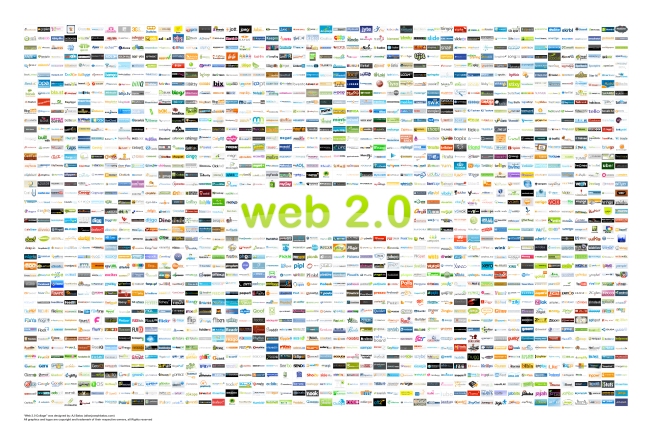I recently read three articles that, though dealing with separate issues of knowledge management, all centered around the impact of emerging technologies on the way we manage knowledge. The three articles were:
- Chua, A. Y. K., & Banerjee, S. (2013). Customer knowledge management via social media: The case of Starbucks. Journal of Knowledge Management, Vol. 17(2), 237-249. doi:10.1108/13673271311315196
- Grace, T. P. L. (2009). Wikis as a knowledge management tool. Journal of Knowledge Management, 13(4), 64-74. doi:10.1108/13673270910971833
- Levy, M. (2009). Web 2.0 implications on knowledge management. Journal of Knowledge Management, 13(1), 120-134. doi:10.1108/13673270910931215
Let me start with the Moria Levy article. Levy wrote this paper in 2009, and though 5 years can be a lifetime in the world of technology, she shows great foresight in her appraisal of Web 2.0, and its implications in the world of KM. At the time of her research, the KM community was starting to ask, “Can KM benefit from Web 2.0?” I could almost see her rolling her eyes at this question. Of course it could benefit from Web 2.0! Levy quotes researcher Singel’s description of the change in online climate, “Web 1.0 was commerce. Web 2.0 is people” (2005).
There is some debate of whether Web 2.0 was a revolution or an evolution. For the discussion of KM adapting to the changes, I’m not really sure it matters. The fact is that now we have a world connected online and who are more than ever becoming active participants instead of solely consumers. It was Levy’s opinion that KM should embrace the changes, and on many levels, the field as a whole has taken that advice to heart.
Next, the article by Chua and Banerjee, published in 2013, uses Starbucks as a case study of how customer knowledge management (CKM) can be accomplished through the use of social media. According to their study, Starbucks has been a innovative leader in the area of CKM. They have taken many steps to help, “redefine the roles of its customers through the use of social media by transforming them from passive recipients of beverages to active contributors of innovation” (237).
CKM doesn’t just manage knowledge from customers, it also manages knowledge for customers, and about them. Starbucks has accomplished this by embracing many different types of social media. They use microblogging services (ex. Twitter), social networking sites (ex. Facebook), location-aware mobile services (ex. Foursquare), and corporate discussion forum services (ex. IdeaStorm). Chua and Banerjee evaluated data from all four categories of social media, and found that Starbucks was highly successful in using a customer-centric approach to KM. This approach has not only proven successful in management knowledge, but in engaging customers, maximizing its marketing and branding, and protecting its online reputation.
Lastly, Tay Pei Lyn Grace published a review of wikis as a knowledge management tool. It should be noted that this review was written in 2009, when it was still uncertain if wikis would be a passing phase, or a valuable tool in the filed of KM. In her review, Grace evaluates the different types of wikis, including personal, semantic, corporate, structured, and peer-to-peer. She also looks at three different case studies: Mapa, eBay, and Ingenta. I found the case of eBay to be especially interesting. eBay had reached a point when the posts on its community boards were becoming difficult to manage. They needed a way to index all of the message so they would be accessible. They chose to use JotSpot’s system, and restricted the use of the wiki to registered users only. At the time of this published review, the wiki was still in its beta version, but was very successful. I know from personal experience that the wiki is easy to navigate and appears to be well managed as to contain the most up-to-date and trustworthy information.
These three articles all show the growing role of emerging technologies in the field of KM. If the field didn’t collectively get the memo in 2009 when Levy wrote her article, I’m sure they’ve all gotten it by now!


Obvs going to need the Chua/Banerjee article now, but I’m curious as to how they define success in social media KM…because collecting a bunch of data is one thing, but I wonder how Starbucks (and everyone else out in the web) is making the knowledge/knowing jump and turning that knowledge into better practices.
I think wikis are charmingly democratic, and that as a consequence of web 2.0 individuals have greater power and greater responsibility with regard to the dissemination of information. It’s been coming up a lot in my readings for this class that, within organizations, social flow both on the web and off it plays a huge role in innovation and adoption of new information.
Before reading the Chua and Banerjee article I had not really considered that companies could use social media to manager their customers’ knowledge. they decide what they want their customers to know, and have learned from the tastes of their customers in revolutionary ways. This puts the customer in charge of innovation, and who better to decide which new products to try other than those who would be purchasing them?
Social networking allows informal social groups to share thought, ideas, values, best practices. Social networking promotes trust among employees and collaboration. The employers on the other hand could use social media to observe and control it. The customers could be also equally involved.The employers could protect the intellectual property by drawing contacts that limit to certain ways social networking of their employees. Social networking is helpful to connect with experts and find formal and informal expertise.